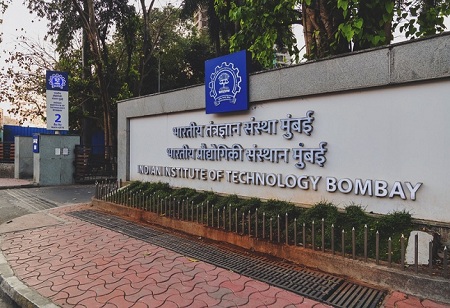IIT Bombay has broken into the top 150 league of the QS World University Rankings 2024, ascending 23 places to 149, up from 172 last year. With 45 universities in the latest rankings up from 41 last year India is the seventh most represented country globally and the third in Asia. IIT Delhi comes in second at 197 in the 20th edition of the rankings, down from 174 last year while IISC Bangalore, last year's country leader, slipped to 225, as Quacquarelli Symonds (QS) overhauled its methodology. India has one less university in the top 200 rankings compared to the previous edition.
QS incorporated its largest-ever methodological improvement by introducing three new metrics sustainability, employment prospects and international research network and recalculating the weighting of certain existing indicators, namely academic reputation, employer reputation and faculty-student ratio. The Indian Institute of Science (225) lost a lot of ground under the reset methodology, partly due to the reduced weightage designated to its faculty-student ratio, which is one of its strengths. However, in citations per faculty, it ranks sixth, with a perfect score of 100, far above the global average score of 17.
This year, there are two more entries from India in the world's top 500 universities, with the University of Delhi (407) and Anna University (427) making their debut in this tier. India exhibited its strength in the field of research influence, evident in its performance in the citations per faculty indicator. With a score of 38.6, India surpassed the global average of 17 and secured the second-highest position in Asia, with more than 10 ranked universities. This highlights India's significant contribution to scholarly literature and its growing impact on the academic community. Thirteen Indian universities feature among the world's top 200, including two among the world's top 15.
However, the rankings show that India needs to invest more in internationalisation and improving faculty-student ratios and the quality of teaching to elevate the global standing of its institutions. In the proportion of international students indicator, India scored an average score of 2.9, much behind the global average of 21.4. It achieved an average score of 7.2 in the proportion of international faculty, indicating that efforts should be made to increase the diversity and representation of international faculty members in Indian universities.
Similarly, India's score of 5.1 in the international research network indicator fell short of the global average of 19.4, showcasing the importance of fostering cross-border collaborations and partnerships. The country's faculty-student ratio score of 18.0 is lower than the global average of 27.6, indicating the need to focus on faculty recruitment and retention.
India's 'employment outcomes' score is one-third below the global average of 24, reflecting the need to reduce the mismatch between job requirements and graduates' skills, as well as to create more opportunities for the new generation of learners. Furthermore, India's new sustainability score of 9.6 is below the global average, indicating the need to prioritise and strengthen sustainability initiatives within the higher education system.
In terms of reputation indicators, India’s average scores aligned closely with the global average. Four Indian universities have made it to the QS World University Rankings for the first time. University of Petroleum and Energy Studies (UPES), Chitkara University, Guru Gobind Singh Indraprastha University and the Indian Statistical Institute. Massachusetts Institute of Technology has retained the top spot in the overall rankings, followed by the University of Cambridge and University of Oxford

